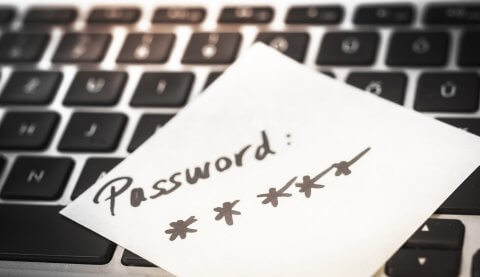
Experts urge enterprises to ditch outdated password routines for behavior-driven, passwordless solutions as cyber threats evolve.
World Password Day is no longer just a day to reset a password—it’s a wake-up call. As cyberattacks become more sophisticated, industry leaders agree: the password, once the gatekeeper of digital identity, has become the weakest link. From evolving best practices to the behavioral science behind poor password hygiene, experts across the cybersecurity spectrum are calling for a fundamental shift in how organizations approach authentication.
World Password Day, observed on the first Thursday of May, was established in 2013 by Intel Security to raise awareness about the importance of strong password practices. Inspired by security expert Mark Burnett’s call to dedicate a day to password hygiene, the day encourages individuals and organizations to strengthen their digital defenses through secure passwords, multi-factor authentication, and passwordless technologies.

The first line of defense: strengthen it or replace it
“A strong password is your first barrier; don’t let it be the weakest link,” says Ezzeldin Hussein, Regional Senior Director, Solution Engineering – META at SentinelOne. “A password is more than just a key; it’s the gateway to your digital identity. Strengthen it, protect it, and complement it with multi-factor authentication. On World Password Day, let’s commit to better security habits—because a strong password today means a safer digital world tomorrow.”
Passwords remain foundational to digital security—but they must evolve. Hussein advocates for strong, unique passwords backed by multi-factor authentication (MFA) and password managers. More importantly, he emphasizes a shared responsibility: users and organizations must adopt secure habits and champion next-generation alternatives like biometrics and passkeys.
The end of the password: a necessary evolution
“We need to move away from reliance on passwords and shared secrets,” insists Chester Wisniewski, Director and Global Field CTO at Sophos. “Access keys or passkeys today represent the most robust solution for building a future without passwords, phishing, and, hopefully, large-scale compromise.”

Sophos’ 2025 Active Adversary Report reveals that compromised credentials remain the top cause of cyber incidents for the second consecutive year. Traditional authentication methods—whether passwords or MFA codes—are being bypassed through advanced phishing kits and cookie theft.
Wisniewski endorses WebAuthn, a protocol that leverages cryptographic key pairs and physical devices, including biometrics. This model not only prevents phishing but also authenticates both the user and the service—making unauthorized access significantly harder.
Understanding why password fatigue persists
“It’s not that people don’t understand the risks. It’s that the need for uninterrupted access often outweighs the promise of long-term protection,” explains Niresh Swamy, Enterprise Evangelist at ManageEngine.
Swamy examines the human side of cybersecurity—specifically the psychological patterns that drive password fatigue, reuse, and weak security habits. Concepts like bounded rationality, availability heuristics, and loss aversion reveal that the struggle with passwords isn’t about ignorance, but about mental efficiency.
Organizations often respond with stricter protocols, but Swamy argues that the real fix lies in removing the need for passwords altogether. Solutions such as passkeys, Single Sign-On (SSO), and magic links reduce cognitive load and eliminate the risk of human error
Designing behavior-aware systems
To effectively tackle risky password behavior, organizations must bridge the gap between convenience and security. That means:
- Adopting passkey-enabled vaults to eliminate password memorization.
- Using SSO to centralize access and reduce the number of logins.
- Deploying PAM (Privileged Access Management) solutions that automate, restrict, and audit access.
- Embedding AI into access control policies to detect and prevent standing privileges and risky behavior in real-time.

These are not just security upgrades—they’re behavioral interventions. “When an organization removes decision points where things go wrong, they’re not just securing systems—they’re correcting flawed human design,” Swamy notes.
Policy must match progress
The technological path forward is clear, but without supportive policy, security tools lose their impact. Shared credentials, over-permissioning, and legacy access controls remain common pitfalls. Progressive companies are implementing dynamic, AI-powered access policies that adjust privileges based on context and usage—reducing friction while increasing protection.
Rethinking the absurdity of passwords
“In many ways, our daily interactions with passwords feel a lot like Sisyphus’ burden,” Swamy reflects. “We push the boulder uphill every day, only to start over. The solution is not to make the boulder lighter. It’s to remove the hill.”
Tools like passkeys, SSO, PAM, and AI do more than simplify access—they eliminate the absurdity of forcing humans to defend digital fortresses with mental gymnastics. When systems account for how people actually think and behave, security becomes sustainable.
This World Password Day, the message is unified and urgent: secure systems must evolve beyond passwords. Whether by strengthening existing routines with MFA and password managers or by advancing toward passwordless authentication, the time for action is now. Because as our digital lives expand, so too must the way we protect them.

Bernard Montel, EMEA Technical Director and Security Strategist at Tenable wants to remind us that we live in a digital world and we need to protect it. With passwords the virtual key to our online world, it’s time to consider our password habits and what – if anything – can be done to make these virtual locks stronger:
Securing Our Digital World: The Paramount Importance of Strong Passwords and Credential Hygiene
This World Password Day is a timely reminder that strong passwords are more than just a best practice—they are critical to safeguarding our personal and professional digital lives. In a world where our data is stored, processed, and accessed online, the strength and security of our credentials can determine whether we remain protected or become vulnerable to cyber threats.
Strong passwords serve as the frontline defence against unauthorised access. They protect not only emails and personal files, but also critical infrastructure, cloud platforms, and autonomous systems that run in the background—such as service accounts, APIs, and automated workflows. As these digital agents increasingly interact without human oversight, securing their credentials becomes just as vital as protecting user logins.
Using complex, unique passwords—blending uppercase and lowercase letters, numbers, and symbols—significantly reduces the risk of brute-force attacks. However, password strength alone is not enough. Each credential should be unique and managed with care, especially for software accounts with elevated privileges or persistent access.
Weak password practices can lead to devastating consequences: data breaches, identity theft, financial loss, and reputational harm. For organisations, compromised credentials—especially those tied to automation or backend systems—can trigger widespread service disruptions, intellectual property theft, and costly compliance violations.
To combat these risks, organisations must adopt a layered approach to password security. This includes implementing multi-factor authentication (MFA), enforcing password complexity and rotation policies, and using secure credential management solutions to protect both human and machine accounts. Regular security training, audits, and awareness campaigns ensure that employees understand the stakes and uphold best practices.
Ultimately, securing our digital world means protecting every entry point—human or machine—with diligence and care.

Morey Haber, Chief Security Advisor at BeyondTrust, said: World Password Day on May 2nd, 2025, remains cybersecurity’s most ironically misguided celebration. As a yearly event, it is a reminder of our collective failure to promote good password hygiene and highlight bad habits and silly mistakes. Despite endless warnings and breaches demonstrating password fragility, we have decided to dedicate a day to celebrate the weakest link in cyber defense; us – human beings.
So, on May 2nd, we will recognize that as humans, we are fundamentally inept at password management and reuse secrets, refuse complexity, forget, and share passwords, creating a lucrative opportunity for threat actors to capitalize on our flaws. Therefore, for future celebrations, I would like to propose that World Password Day focus on marking a proactive pivot toward biometrics and passwordless authentication options, so we can ultimately change the narrative of identity attack vectors. Instead of promoting stronger passwords and a day when everyone should rotate their passwords, perhaps we should promote a technological revolution and replace passwords with modern solutions that can minimize our own human weaknesses: biometrics, MFA, and passkeys for everyone.
Ziad Nasr, General Manager – Acronis Middle East
On World Password Day, Acronis is reminding individuals and organizations across the UAE that a strong password remains one of the simplest, yet most powerful defenses against cybercrime. According to the Acronis Cyberthreats Report H2 2024, the UAE ranked among the top three countries globally targeted by malware attacks. A striking 16.2% of malicious URLs detected globally were blocked on UAE endpoints, signaling high exposure to credential-stealing threats. Compounding the risk, email-based attacks surged by 197%, with phishing responsible for 74% of all cyberattacks during this period. These phishing schemes are often designed to harvest login credentials, exploiting weak or reused passwords to gain unauthorized access to critical systems. Passwords are often the weakest link in cybersecurity. When attackers steal them through phishing or data breaches, they can bypass most security systems unless multi-factor authentication is in place.

Acronis urges users in the UAE to:
- Avoid common passwords like “123456” or “admin”—still alarmingly prevalent in breach data.
- Use a password manager to create and store strong, unique passwords.
- Enable two-factor authentication (2FA) wherever possible.
- Educate employees about phishing tactics to prevent password theft.
In today’s threat landscape — where AI-powered cyberattacks are rapidly growing — strong password hygiene isn’t just an IT recommendation; it’s a frontline defense.


